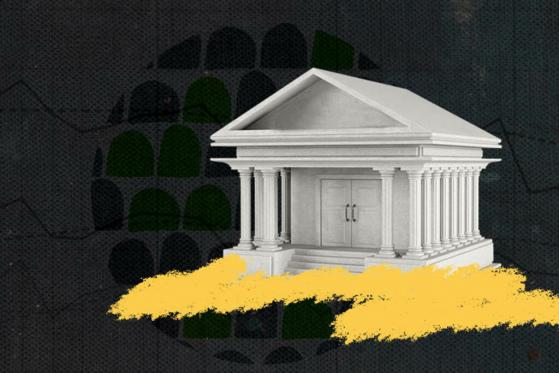- The international credit body’s request is part of the memorandum of understanding recently signed with the Argentine government.
- The NGO Bitcoin Argentina has asked the government to offer an explanation about the controversial measure.
- The agreement with the IMF, which must be ratified by the Argentine Congress, has already been approved by the Chamber of Deputies.
The foreign debt refinancing agreement signed by the Argentine government with the International Monetary Fund (IMF), asks to discourage the use of cryptocurrencies. The request is part of a set of monetary and fiscal policy actions to which the South American nation is committed in order to have longer payment terms.
Such a request was only made known when the agreement with the IMF was presented to the Argentine Congress for discussion and approval. The bitcoiner communities immediately reacted to ask the government for an explanation of how it intends to “discourage” the use of cryptocurrencies in the country.
Argentina is one of the top 10 countries in the world in the adoption and use of cryptocurrencies, according to statistics from Chainalysis. The clause contained in the “Memorandum of Economic and Financial Policies”, which is part of the agreement signed with the financial institution and sent to Congress, expressly establishes the request.
“To better safeguard financial stability, we are taking measures with the aim of discouraging the use of cryptocurrencies with a view to preventing money laundering, informality, and disintermediation,” the text states. It adds that these measures also seek to “provide more support to the current payment digitization process to improve the efficiency and costs of payment and cash management systems; and safeguard the protection of the financial consumer”.
Crypto NGO asks the government for explanations
Last week, the NGO Bitcoin Argentina asked the Minister of Economy, Martín Guzmán, to allow access to the original text of the agreement signed with the IMF, where the body requests the application of measures against the trade of cryptocurrencies in the country.
"We are convinced that the way forward is not disincentives or prohibition, but to work in a coordinated manner with the private and public sectors to take advantage of the potential of decentralized finance," said Javier Madariaga, executive director of the non-profit organization. “We are concerned that the authorities are agreeing to discourage a technology that has already been massively adopted by the population itself instead of unlocking its potential to address historical problems,” he added. He argued that last year only 0.15% of the operations carried out with digital assets in Argentina “were associated with some illicit activity, such as fraud or money laundering. These percentages are much lower than those presented in transactions made with fiat money.” “Blockchain technology, which emerged with the birth of Bitcoin, is a decentralized public ledger, where anyone can access the data chain, and each transfer is recorded in a secure and verifiable way through the use of cryptography”, specified Madariaga.
On the Flipside
- Argentina currently has the highest inflation rate in Latin America, registering 4.7% in February, above Venezuela, which ranks first in the world with 684% per year.
- The country has been subjected to a permanent and progressive process of devaluation of its national currency, the peso against the dollar, for years.
- For these reasons, many Argentines are choosing to use and save in cryptocurrencies.
Why You Should Care
- The IMF has been encouraging member countries to issue central bank digital currencies (CBDCs).
- Its managing director, Kristalina Georgieva, has said that CBDCs may become better than private cryptocurrencies such as Bitcoin, Ether, Cardano or stablecoins.
EMAIL NEWSLETTER
Join to get the flipside of crypto
Upgrade your inbox and get our DailyCoin editors’ picks 1x a week delivered straight to your inbox.
[contact-form-7] You can always unsubscribe with just 1 click.
